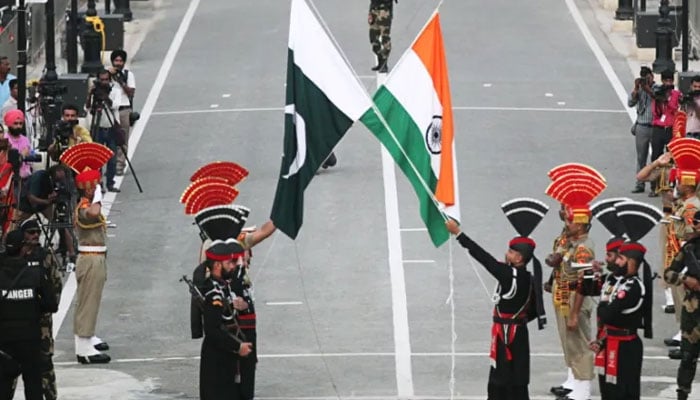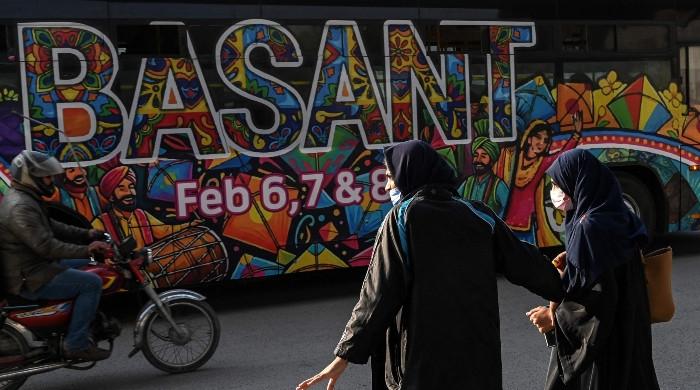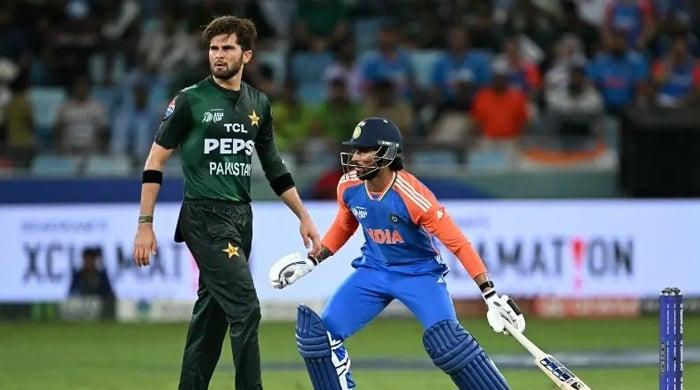Seizing the strategic moment
It is time for state to draw right lessons — domestic and global — and not fall prey to either hubris or complacency
August 13, 2025

The nation has witnessed a miracle called Marka-e-haq. It is the miracle of a Pakistan fortified unexpectedly, elevated strategically, unified domestically and repositioned globally.
In four days in May, Pakistan outmanoeuvred and outclassed an enemy an order of magnitude bigger in economy, population and conventional arms. In doing so, Pakistan sent a superpower manque reeling back into the ranks of middle powers and broke out of the terrorism straitjacket the world has put it in for most of the twenty-first century.
"Pakistan has long stood at the receiving end of international scepticism", write Murtaza Solangi and Ahmed Al-Arabi in a new book.
"How many soldiers we bury or how many children we mourn makes no difference. No matter how often we warn of Indian adventurism or submit dossiers to the United Nations, we are, more often than not, judged guilty before we can prove our innocence".
Pakistan's victory was a manifestation of hitherto unexpressed national power. The triumph is all the more staggering because it came within a milieu of disillusionment with the Pakistani state and overt invective towards Pakistan's armed forces, particularly by one political party that has raised the spectre of the country's break-up in 1971 and attacked all institutions of the state and their leaders.
Yet, when it counted, Pakistan's civilian and military leadership came together — particularly Prime Minister Shehbaz Sharif and COAS Field Marshal Asim Munir — and the three armed forces came together in unprecedented battlefield integration. This victorious harmony has vindicated Pakistan's strategic relationship with China and stunned the world.
Behold the ash-heap of Hindutva's hubris. On top lie the charred remains of Indian air defence. Underneath lie cinders of Indian ambitions to: permanent membership of the UN Security Council, regional hegemony, counter-weighing China, being "net security provider" in the Indo-Pacific, de-hyphenating from Pakistan, and using the Israeli playbook to coerce Kashmiris in IIOJK.
If the punitive tariffs imposed and equally punitive rhetoric on India by the Trump administration are any guide, the US has discovered the ash-heap.
A long array of diplomatic debacles has followed Hindutva's military defeat. In direct contradiction to PM Modi's protestations, President Trump has, to date, taken credit three dozen times for the ceasefire in the Indo-Pak war. The American president has added insult to injury by using "mediate", "Kashmir", and re-hyphenating India and Pakistan — all notions inimical to India’s inflated self-image of transcending South Asia. India’s post-war diplomatic mission failed, and so did its efforts to prosecute and damage Pakistan's interests in FATF, IMF, World Bank, SCO and BRICS.
Contours of this rare, positive strategic moment for Pakistan have come into view as a consequence of the PM's delegation sent in June to the UN, Washington, the UK and the European Union. The delegation's strengths were threefold.
First was the victory itself, but the second was that we did not seek any military aid or budgetary support from our hosts. The third was, and is, that Pakistan seeks peace while India is embarked seemingly on a perpetual war.
What we saw, heard and felt: Afghanistan is fading from public memory in Washington; so is the attached antagonism against Pakistan. Consequently, Capitol Hill was surprisingly positive and receptive to our concerns. Criticism of Pakistan was muted. A clear divide is visible between the US establishment, which is still pro-India, and the White House, which is dramatically less so. Pakistan is also benefiting from India’s retreat from the United Nations.
Islamic countries are rediscovering Pakistan’s strengths. There is widespread empathy with Pakistan at the UN and EU on the Indus Waters Treaty. The EU is keen on salvaging the rules-based order. There is international respect for and curiosity about Pak-China defence cooperation. And last but not least, President Trump's repeated praise for Pakistani leadership and hosting lunch for the field marshal has brought tremendous positivity for Pakistan in Washington.
Yet the question is vital: how long will this positivity last? Months, weeks? All the more reason for Pakistan to boldly venture forth into the international arena. Pakistan’s month-long presidency of the UNSC has concluded. Pakistan must continue vigorous conversations worldwide for the restoration of the IWT, respect for international treaties and nuclear restraint. The UN unfortunately is paralysed by its inability to stop the genocide in Gaza. Pakistan has to enter other arenas to pursue its interests.
A clear message to India must go out, as enunciated by Emile Simpson: "If you want stability in the world, you have to have clear strategic boundaries that seek to compartmentalise conflicts, and not aggregate them. If you don’t box in your conflicts with clear strategic boundaries, chronological, conceptual, geographical, and legal, then you experience a proliferation of violence".
Thus, the first task before Pakistan is to prepare for the next war by filling the gaps in our defence. The recent increase in the defence budget is welcome, but strengthening our defences will also require an untrammelled analysis of the tooth-to-tail ratio, followed by a ruthless optimisation of resources.
A diplomatic campaign must begin by allocating resources to become the foremost advocate for lower-riparian water rights in the world. It is time to aggressively champion a successor to Saarc with China as a member and without India. The PM should continue the mid-level diplomatic initiative by sending smaller delegations to converse regularly with the European Commission and EU Parliament.
An outreach to countries in North America, Europe, BRICS and the Quad is warranted. Let us take neither friends nor foes as permanent and leverage Pakistan's newfound salience to reach out to friends, particularly in the Gulf. Begin a dialogue with environmental and water organisations worldwide.
Let us not forget lawfare. Building on the Hague court’s opinion, Pakistan must obtain an opinion on India’s putting the IWT "in abeyance" from a panel of eminent international lawyers and send capable lawyers to attend select international law conferences to create a positive climate of opinion on the IWT. An international, multi-platform information campaign is crucial and needed immediately to brand India as a revisionist, reckless power intent upon breaking international law on Kashmir, IWT and nuclear restraint.
The danger is clear and present. We have a ceasefire; we do not have peace. Embers of Hindutva's anti-Muslim and anti-Pakistan hate continue to glow. PM Modi and his ministers continue to bait Pakistan with "eat bread, otherwise my bullet is there"; repeating that the ceasefire is a "pause" and that there was no question of returning to the IWT.
Hindutva cannot bear the disgrace and will lash out in anger.
After the monsoon recedes in a few weeks, PM Modi will have the first opportunity to stop waters of the Chenab and Jhelum rivers, which in turn will trigger the policy of Pakistan’s National Security Committee: "Any attempt to stop or divert the flow of water belonging to Pakistan as per the Indus Waters Treaty, and the usurpation of the rights of lower riparian will be considered as an Act of War and responded with full force across the complete spectrum of National Power".
It is rare for nations to be granted an opportunity for a strategic reset. After a quarter-century of internal strife and international suspicion, Maarka-e-Haq has provided Pakistan with a precious circumstance.
Wrote Shakespeare in "Julius Caesar": "There is a tide in the affairs of men/Which, taken at the flood, leads on to fortune; /On such a full sea are we now afloat;/And we must take the current when it serves, / Or lose our ventures".
It is time for the state to draw the right lessons — domestic and global — from the war and not fall prey to either hubris or complacency. We must seize this strategic moment.
Disclaimer: The viewpoints expressed in this piece are the writer's own and don't necessarily reflect Geo.tv's editorial policy.
The writer has served as Pakistan’s minister for foreign affairs, defence, commerce, and energy. He posts @kdastgirkhan
Originally published in The News











